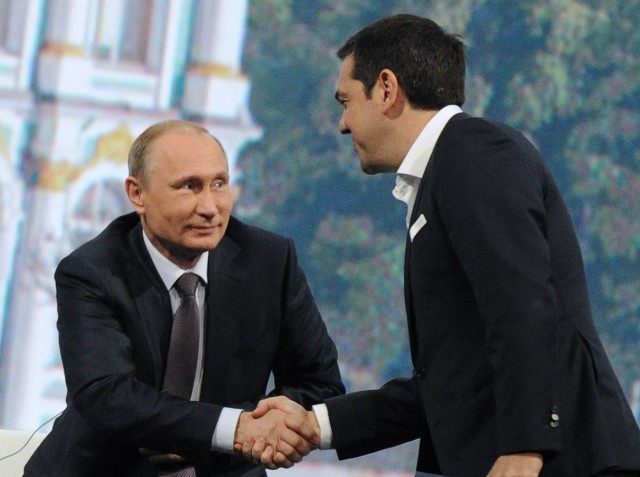The Greek government has at last confirmed what has long been suspected; it is planning a €2bn gas pipeline with Russia. The move is likely to cause concern in other EU member states and allies such as the United States who fear the extension of Russian influence on the continent.
Panayotis Lafazanis, the Greek energy minister and political patron of Greece’s biggest public sector company, the Public Power Corporation, presented project plans to Greek energy executives in Athens yesterday. The leader of Syriza’s ‘internal opposition’, known as the Left Faction, gave what the Financial Times reported to be a defiant speech. Leading with pugnacious references to the eurozone crisis he declared the Greek government would not be dictated to by EU institutions.
“Greece is no one’s hostage,” he said. “The Greek people’s No vote, and I am referring to all of the people, is not going to become a humiliating Yes. Greece is not, under threat of execution, ready to accept any fait accompli.”
The combative rhetoric did not surprise analysts of Greek politics. They speculate that Lafazanis will stir up internal Syriza opposition if he objects to the terms of a new bailout deal negotiated by Greek Prime Minister Alexis Tsipras. Of more global interest are the motives of Russia, a country which under Vladimir Putin has been offering assistance to Greece for some time. Earlier this year he said: “Just because Greece is debt-ridden, this does not mean it is bound hand and foot, and has no independent foreign policy.”
Consultants with Wikistrat have been analysing what Russia sees for itself in the deal. In a report entitled Russia-Greece Relations: Playing a Game of Flirtation Dr. Anna Matveeva,visiting senior research fellow at the Department of War Studies of King’s College London and member of that institution’s Russia and Eurasia Security Research Group, predicted that the US will feel the affects of Russian influence as well as EU members. She wrote:
“…the recent Moscow-Athens dialogue has given a boost to Russia’s soft power and made headlines across the world. It has signaled that Putin and his government are not on their knees, and has made Washington worry that too much EU pressure will push Tsipras straight into the Russian “bear hug.” How long will the U.S.’s “expert advice” on the EU’s Greek problem be warmly appreciated in Berlin and Brussels?”
Tim Foxley is an independent political/military analyst who covered issues in Eastern Europe, the Balkans and Russia when working for more than a decade at the U.K. Ministry of Defence. He believes Putin seeks to bring about division within the EU and even to punish it for sanctions imposed following the seizure of Crimea and parts of Eastern Ukraine. He predicts:
“Greek debt problems will not be suddenly resolved, regardless of the outcome of the negotiations. In the months and years to come, many factors (further payment defaults, collapse of government, popular protest) could derail agreed-upon reform and repayment programs. The Balkans will remain a Russian sphere of interest. Putin’s larger game involves dissipating EU unity, perhaps by nibbling at the edges (a gas pipeline here, a military deal there) or planning a future sudden lunge. In any case, he will continue to scan for opportunities amongst the vulnerable.”
As the next deadline for a Greek bailout approaches Eurogroup members and external observers would be right to remain fearful of the future. The Prime Minister of Greece may return from Brussels with a deal, but his own government’s leftist firebrands headed by Lafazanis may still refuse to accept. If that proves to be the case then Russia is waiting in the wings.

COMMENTS
Please let us know if you're having issues with commenting.